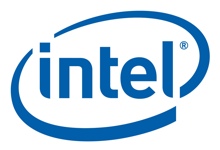$599 ultrabooks by the holiday season is too little, too late


In an attempt to improve adoption rates, Intel is looking to push down the starting price of Ultrabook systems to $599 by the holiday season. While this will undoubtedly be nice for those looking for a bargain, it is unlikely to be enough to reinvigorate interest in the platform.
Speaking at last week's Intel Solutions Summit (ISS) 2013 in Los Angeles, Kirk Skaugen, senior vice president and general manager of Intel's PC Client Group, announced the price cut to an audience of top OEMs.
Skaugen also said that the early Ultrabooks were "just a retrofit of what was already in the market," and that new Haswell-based models would bring a whole raft of new features to the table, including touchscreens, faster drives, and all-day batteries.
But the problem is that this is too little, too late. Despite Windows 8 getting off to a good start, with Microsoft selling 60 million licenses by the beginning of January, it seems that most of these were sold to hardware OEMs and are sitting on shelves waiting for customers to buy new PCs. And in the meantime, people are discovering Android and iOS tablets, and that they don't need a full operating system to do the things they want to get done.
See also: A $99 Kindle Fire would annihilate the Android tablet competition
Another factor placing a headwind on Ultrabooks is the aggressive product upgrade cycle from the likes of Apple and Samsung. These companies are building on the success of previous generations of hardware by releasing better models on a regular basis. Also, as more people get locked into the iOS or Android ecosystem, they're less likely to want to take a chance with a different platform, even if that platform is Windows, one that is familiar to most computer users.
The holiday season is a long way away, and by then there will be a new iPad and iPhone, along with a slew of Android-powered devices, all tempting the money out of consumer's pockets.
The PC market is stagnating, and tinkering with existing form factors — which is what the Ultrabook essentially is — won't help that much. The era of the PC is waning, and replacing it is the post-PC era, one dominated by low-power, low-cost, easy-to-use devices.
The tide is turning and Ultrabooks isn't going to stop it from happening.